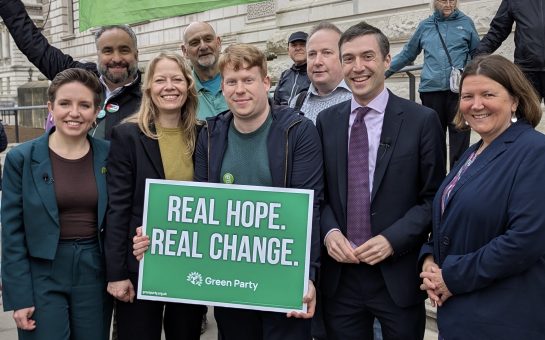Details of 100 companies suspected of using interns in traditionally paid positions were passed to HMRC last week.

The exploitation of new graduates and young people in the work place came under fire last week.
Details of 100 companies suspected of using unpaid intern workers in traditionally paid positions were passed on to HM Revenue and Customs (HMRC) for investigation.
But some accuse the government of not doing enough to stop these practices, letting investigations slide so that unemployment figures look more positive.
Interns are not entitled to claim Jobseekers Allowance, which critics say allows for better national statistics but excludes anyone whose parents or significant others can’t afford to support them.
Internships were traditionally used to form part of the training process for professions that required a base understanding of knowledge before accreditation.
The Oxford English Dictionary defines an Intern as being: ‘a student or trainee who works, sometimes without pay, in order to gain work experience or satisfy requirements for a qualification’.
In the traditionally competitive industries like journalism and law, internships are seen as one way to hone your skills and gain necessary experience, but many recognise that they can also be exploitive.
Sophie Alexander, 23, from Wimbledon, is an English Literature graduate who had a negative journalism internship experience.
“They treated me like a dog,” she said. “They made it sound like they were doing me a favour, but really it was just slave labour.”
She explains that they didn’t pay for her travel expenses, but still insisted that she still came in at 9:00am despite making her review gigs which finished at 1:30am.
However in today’s cash strapped and shrinking economy, more and more companies seem to be using interns to save money.

Graduates can find themselves caught in a ‘catch 22’ situation, where most entry level jobs will demand one to two years’ worth of experience.
Internships are now being offered in administration, PR, marketing and other professions.
I spoke to a small IT company, who wished to remain unnamed, that was offering an unpaid internship in administration.
They explained that they only decided to use this option as they wanted to be sure that the candidate could do the job. If successful, the candidate will be offered a permanent job.
Gus Baker, co-director of Lambeth-based action group, Intern Aware, said: “It’s not that these large companies don’t have the cash to fund these positions, it just that they look at junior roles and think why would we pay for it when someone will do it for free.”
He said it now seems almost culturally acceptable to say that you have young people working for free.
Stressing that he was not against internships as a principle, Mr Baker said: “Paid internships are great; they allow a person to try out a new industry. What is not okay is unpaid lengthy internships which exploit and exclude workers from the industry.”
Those suspected of internship abuses could be investigated by HMRC under the 1998 Minimum Wage Act. If a company is found guilty, then they can be fined and publically named.
“The Government guidelines on minimum wages are clear,” says Mr Baker. “More prosecutions will change company attitudes towards unpaid work.”
If you require more advice or information on intern working rights, then you can contact the Government’s Pay and Work Rights Helpline on 0800 917 2368 or visit www.gov.uk/employment-rights-for-interns.
Photo courtesy of InternAwareUK via YouTube, with thanks.
Follow us @SW_Londoner




